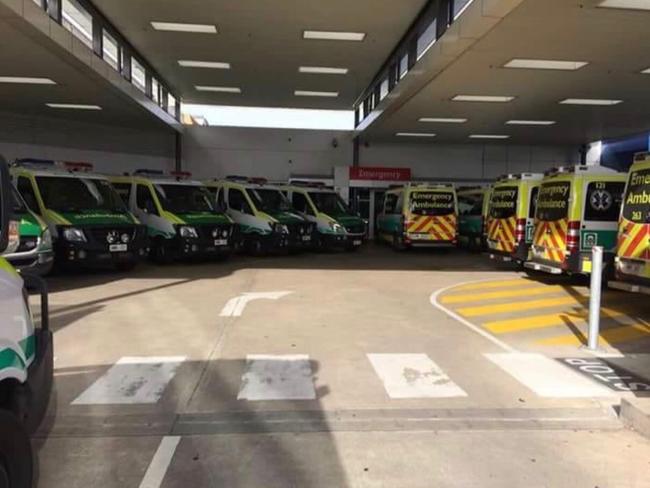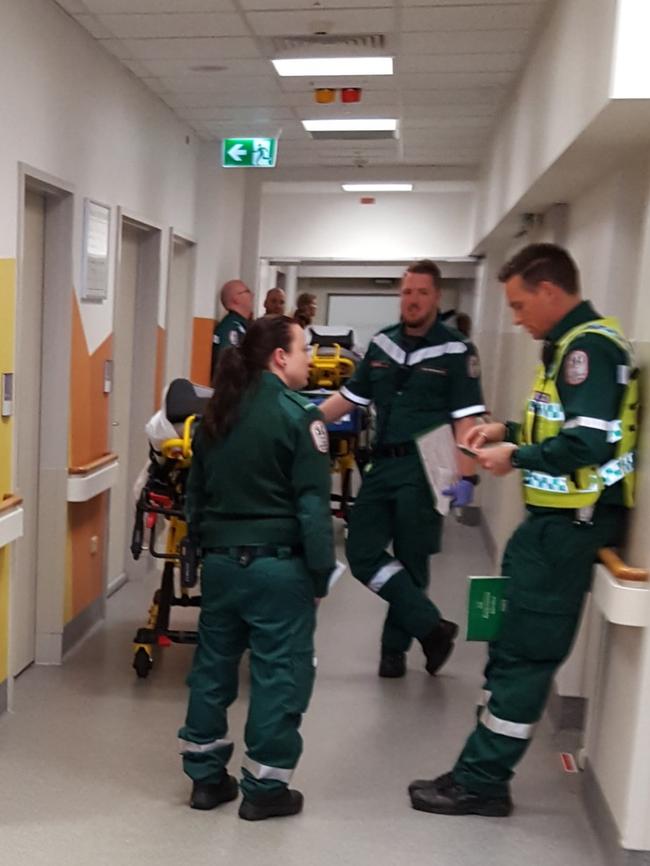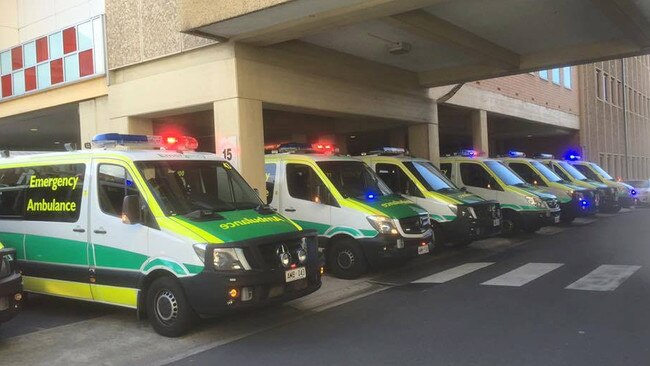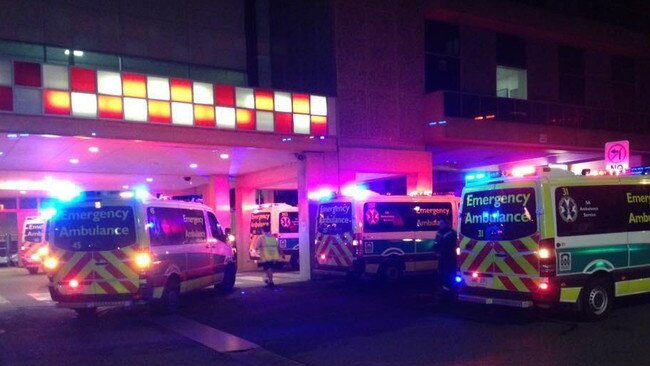Ambulance ramping at Adelaide hospitals causing high stress, low morale among paramedics
AMBULANCE ramping outside Adelaide hospitals is causing soaring psychological stress among demoralised paramedics, who are worried about being unable to better help their patients, can’t respond to new calls, are fatigued, missing meals and finishing late.
- Ambulances ‘lose’ 70 hours in just eight hours from ramping
- Ambos ramping, EDs clogged as 62 patients wait for beds
- RAH ‘discharge lounge’ to reduce ambulance ramping
BESIEGED paramedics are reporting three stress-related incidents a week, as ambulances are forced to ramp for hours outside major Adelaide hospitals.
The practice is also leaving ambulance staff demoralised because they can’t get back out on the road to help people in need.
A submission to the Senate by Paramedics Australasia shows that from the start of 2018 to mid-June, paramedics made 73 incident reports relating to stress on the job, averaging three a week.
Of those, 43 were related to exposure to traumatic events and 25 were related to work pressure and fatigue. Another five incidents related to “workplace relationships” between management and crew.


The Ambulance Employees Association says paramedics being stuck for hours ramping at hospitals was putting even more stress on those left on the road.
SA Ambulance Service figures show there were 99 stress-related incidents in 2017-18, down from 124 in 2016-17.
But if the second half of this year replicates the first, there would be about 150 incidents over the 12-month period.
Interim SAAS CEO David Place said of the 99 reports last financial year, 12 ended in claims for compensation.
“The majority of these incidents and claims relate to fatigue and to incidents and threats of violence and aggression,” Mr Place said.
“Work conditions, practices and workloads are constantly monitored to ensure issues that could contribute to psychological stress and fatigue are identified and mitigated. More than 70 peer support officers provide psychological first aid to staff or can provide referral to mental health professionals on a range of workplace and non-workplace related issues.”
The chief executive of the Council of Ambulance Services, David Waters, told a public hearing in Hobart on emergency services and mental health conditions that the stress of ramping was mounting over time for paramedics.

“Delayed patient transfer and ramping are not prevalent in every ambulance service,” Mr Waters said.
“The impact of the paramedics having to wait for hours with a patient, either in a corridor of a hospital or in the back of an ambulance, mounts up over time.
“They are stressed because they need to offload the patient. They are stressed because there are other patients waiting for a response and they can’t respond.
“Also, it can become quite demoralising for a paramedic to just stand or sit, waiting for hours on end, when, really, they need to be out on the road helping other people.”
Mr Waters said that the issue of ramping was complex and that “it’s in the best interest of everybody not to have ramping”.
Ambulance Employees Association state secretary Phil Palmer said ramping added to the already stressful job done by paramedics.

“There is denial of their ability to attend to patients in the community who haven’t been seen yet,” Mr Palmer said.
“There is increased stress to the ambos who are on the road because all the resources are tied up at hospitals. They are missing meal breaks and not finishing on time.
“There are also issues of long-term care in ambulances — they’re not designed for patient comfort in terms of long stays. For some patients they are in danger of getting pressure sores if they are there too long.
“Stress for ambos and first responders is a well-known factor and ramping just adds to that,” he said.
The Senate inquiry into the mental health of emergency service workers will sit in Adelaide on August 29.
